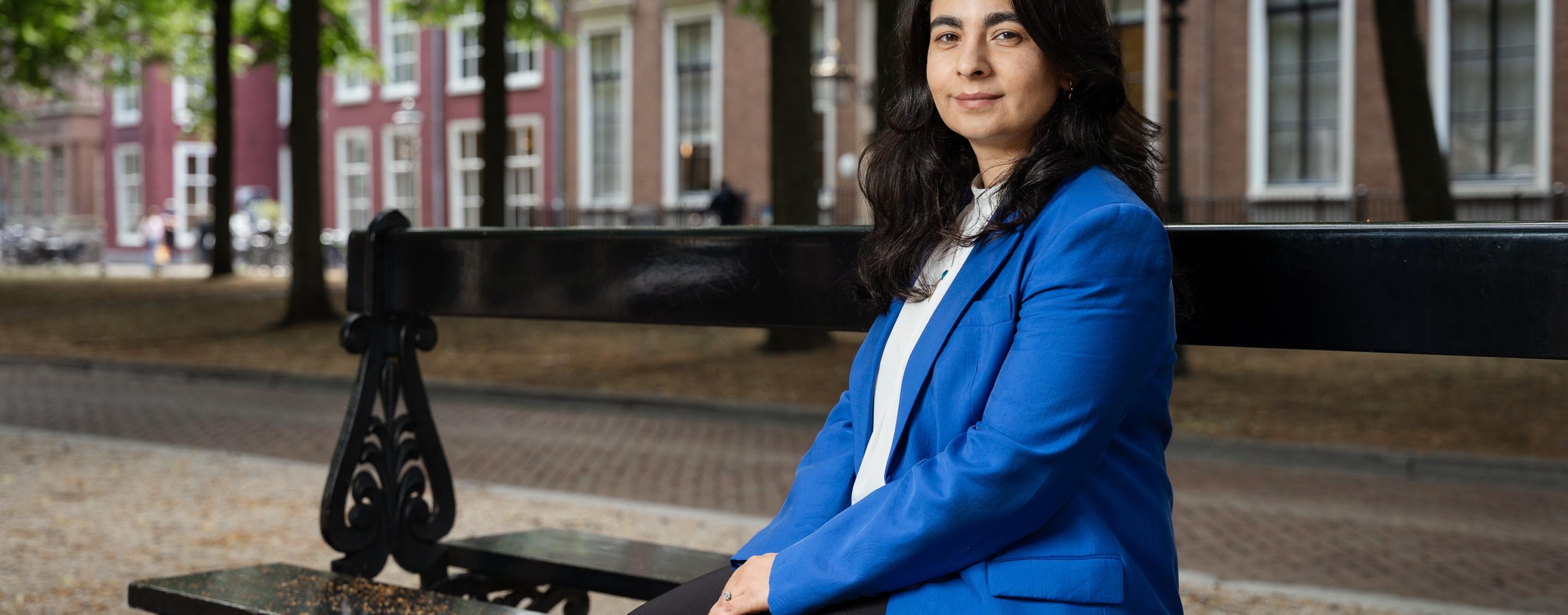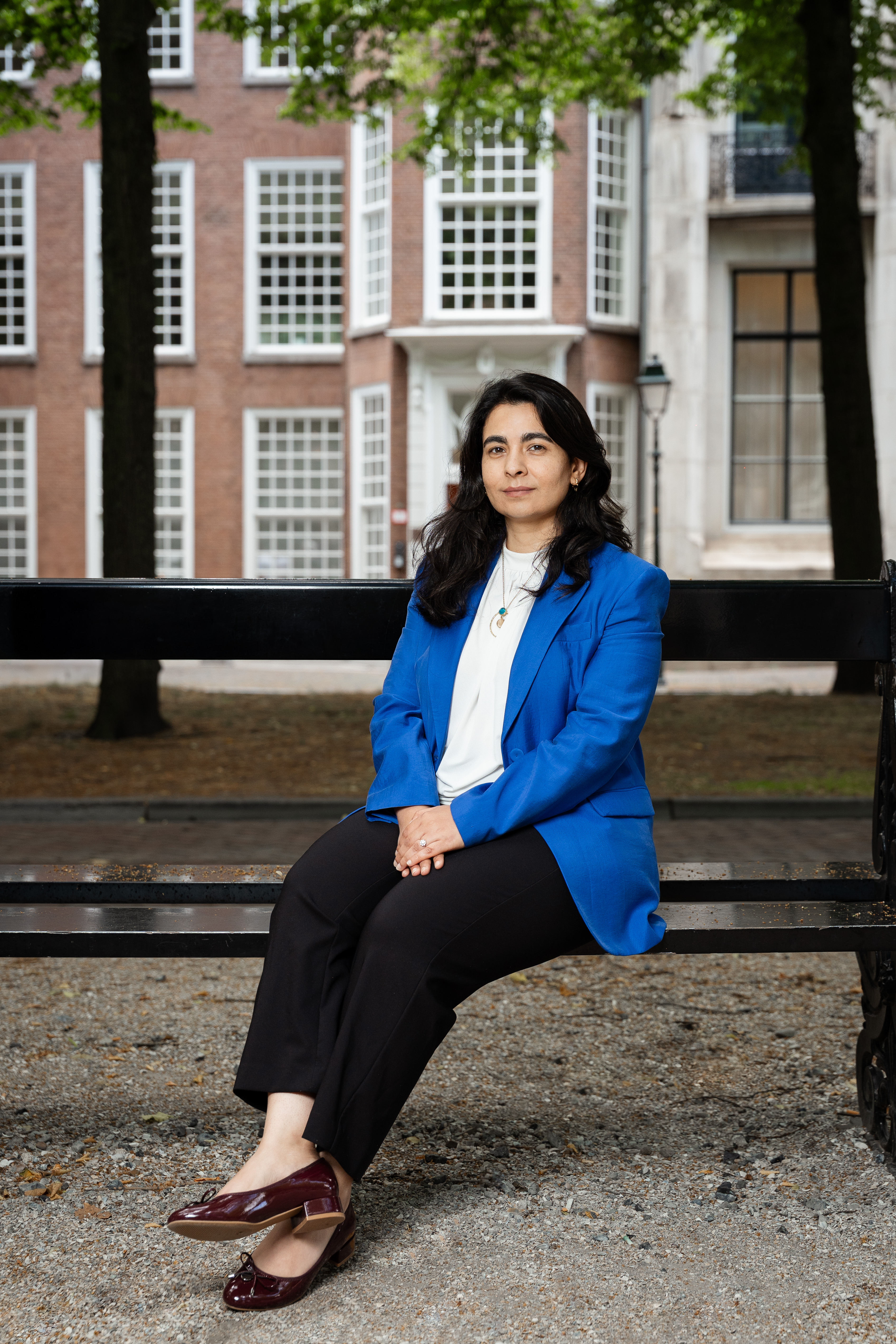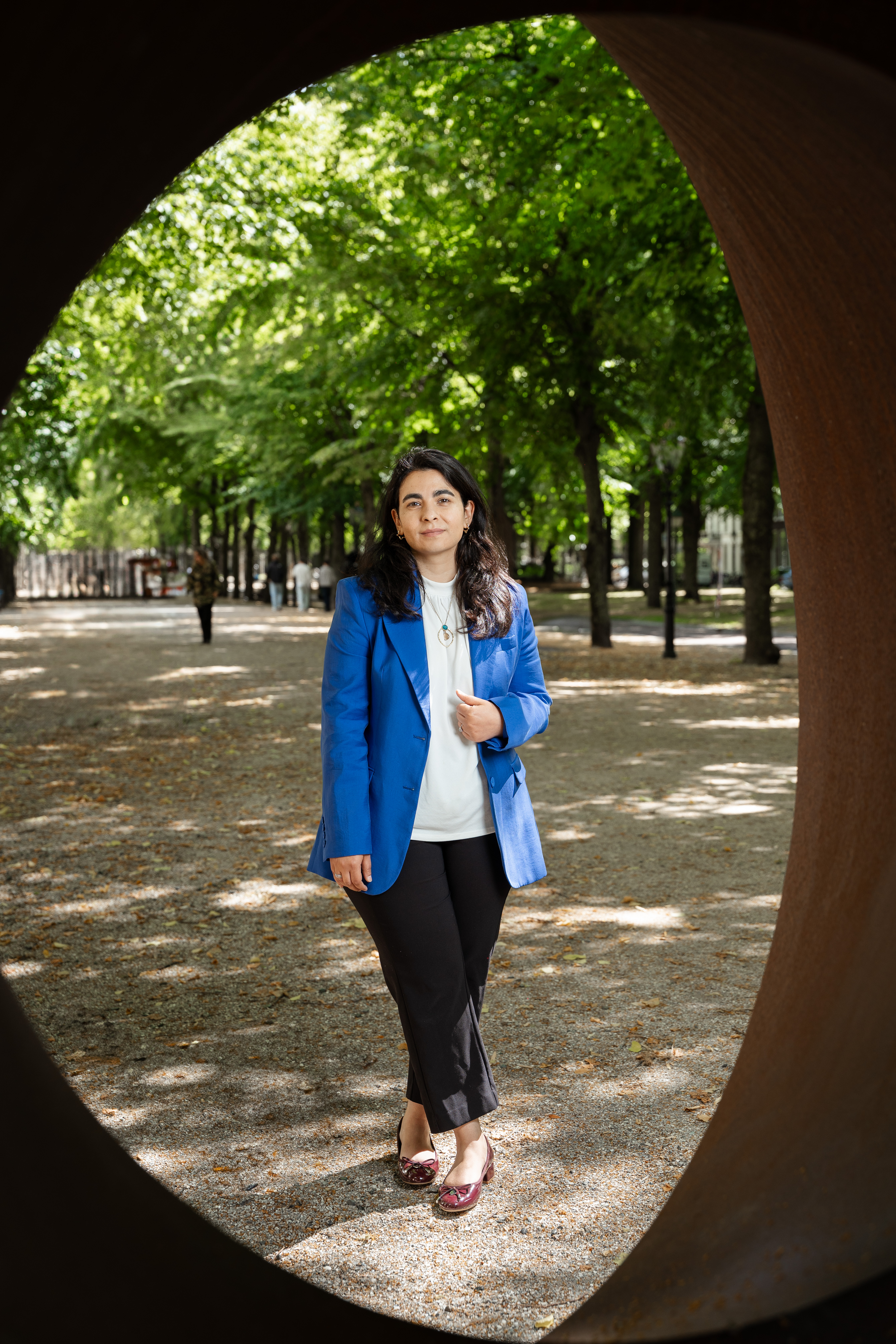
Zainab Malik: Living in a Vermeer Painting Feels Like Home
Finding beauty in the Dutch sky
For Zainab Malik, The Hague is a city where the soft light, clouds, and rain create a mood she has come to love. “I love the weather,” she says. “It feels like living inside a Vermeer painting, with the sky changing above you and the world slowing down just enough to notice.” Originally from Pakistan, Zainab has made The Hague her home for the past seven years, building a life rooted in justice, family, and an appreciation for the contrasts that make the city unique.
From human rights in Pakistan to global justice in The Hague
Zainab’s move to the Netherlands was shaped by love and purpose. Born and raised in Pakistan, she spent years working as a human rights lawyer, representing prisoners on death row, people with disabilities, and survivors of sexual and gender-based violence. That work left her with a clear conviction. “There needs to be a fundamental reform of the way justice systems operate, not just in Pakistan but around the world,” she explains. When she relocated to The Hague to join her partner, she found a city where her passion for people-centred justice could grow into something global.
“I have always wanted my life’s work to leave the world a little better than I found it. Living here, I feel like I can make that difference while building a home for my family.”
Designing better systems around the world
Today, Zainab works with The Hague Institute for Innovation of Law (HiiL) on a mission to help design justice systems that better meet the needs of people in regions across Africa, Asia, and beyond. Her work ranges from projects in Nigeria and Uganda to initiatives in the Sahel, all aimed at making justice more practical, fair, and accessible. At the same time, The Hague itself has given her something she did not expect to find so quickly: a deep sense of belonging.
A city of contrasts, and a place for every story
What resonates with her most is how the city manages to hold so many contrasts. “You can walk a few streets and see incredible wealth next to communities facing real challenges. You can have a parliament pledging to end the entry of refugees into the country. But on the other hand, the city is home to so many organizations that are committed to resettling the refugees and providing them with a home here.” she says. For Zainab, these contrasts are not contradictions but a reflection of a city that makes space for every story. “It feels like a place where every voice can find space.”
Adopting Dutch habits—and freedoms
Beyond her work, Zainab has embraced the subtler joys of life here. She laughs about how easily she has adopted habits she never imagined, like happily eating bread and cheese for lunch every day or getting impatient when someone is late. More than anything, she values the security and freedom she feels as a woman. “I can walk, run, and live my life without a second thought. That is a privilege I do not take for granted.”
“Home is the place you miss when you leave it. Every time I travel for work, I find myself missing The Hague, and that is when I know it has become mine.”
Finding art in the clouds and meaning in tradition
Zainab has also grown to love the pace of Dutch life. What others might find gloomy about the weather is something she now celebrates. “The clouds, the rain, even the wind, they slow you down and make you notice things. It is not for everyone, but for me it feels like art,” she says. Among Dutch traditions, Keti Koti, the annual celebration of the abolition of slavery, holds special meaning for her. “It matters that the city acknowledges the history that built its beauty. You cannot move forward as a society without understanding how you got here.”
Coffee, community, and local life
Outside of her legal career, Zainab and her husband run a small specialty coffee shop on Prinsestraat, a space she describes as their personal anchor in the community. “It is where we meet neighbours, share conversations, and feel connected to the everyday life of the city,” she says. “The Hague is not just a place to work. It is a place where we can contribute to the culture around us.”
A welcoming start with The Hague International Centre
Her first experience with The Hague International Centre came when she walked into City Hall, unsure where to go. “I remember seeing a sign in English that said The Hague International Centre, and I knew that was where I needed to be,” she recalls. The team helped her register, answered her questions, and turned what could have been a stressful experience into one that made her feel welcome. “Having a place like that right in City Hall, where internationals know they can find help, is something special.” Over the years, she has seen how the Centre does more than provide practical help. “They make it possible for people to integrate and feel like they truly belong.”
A city that holds it all
For Zainab, The Hague is more than a backdrop for her work. It is a city that offers her and her family space to live fully, from mornings that feel like a painting to evenings in their café surrounded by friends and neighbours. “It is a city of contrasts, but those contrasts make it whole. That is what makes me feel like I belong here,” she says.
The Hague International Centre 15 Year Anniversary
If you are new to The Hague, supporting newcomers, or simply curious about what makes this city so international, visit the The Hague International Centre. Whether you are looking for information, inspiration, or collaboration, it is the place to start. Over the past 15 years, the International Centre has welcomed 60.000 internationals from all walks of life, each bringing their unique perspectives and experiences.

